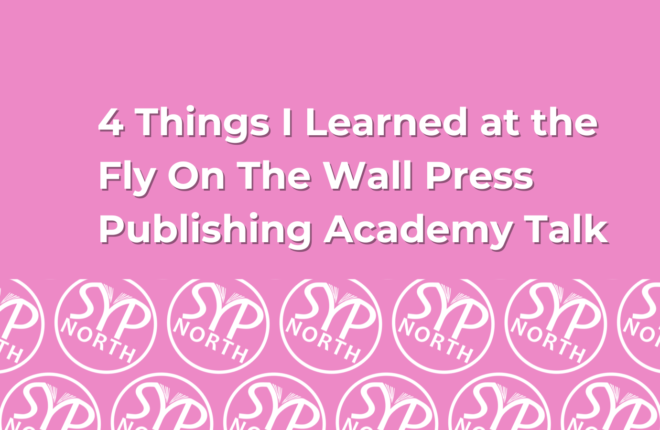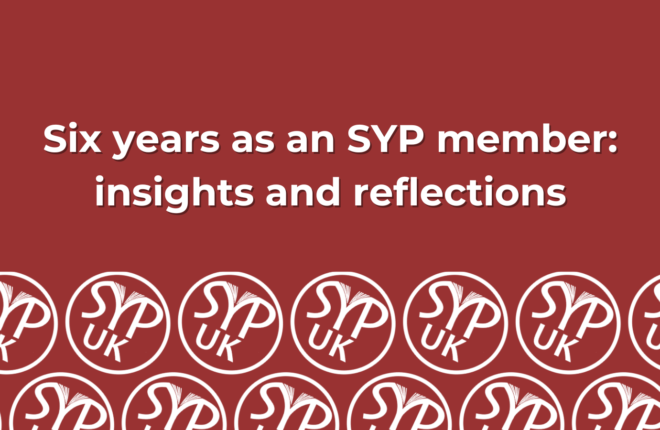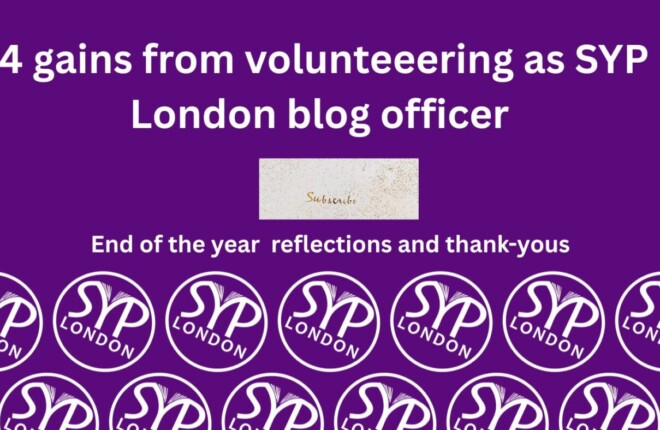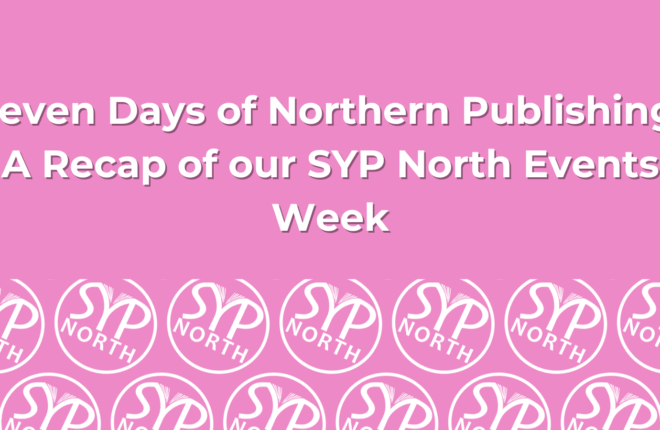
Insights from the IPG 2025 Autumn Conference: Making Sense of What Matters
Posted on September 23, 2025 in AHEAD, INTO, London, UK

The phrase ‘turbulent times’ can feel somewhat cliché, but, as the 2025 Independent Publishers Guild (IPG) Autumn Conference confirmed, the imperative to “make sense of what matters” is no less important in such a fast-changing publishing environment. Bringing together publishing experts, librarians, and supporters, the IPG’s conference, hosted on September 16 at London’s Shaw Theatre, sported a packed programme ready to improve delegates’ understanding of publishing’s response to and integration of AI, the new impact of EU accessibility legislation, and the ever-present opportunity for independent publishers to show adaptability in the face of strong economic headwinds. As SYP North’s Email Communications Officer, I was honoured to attend the conference and have subsequently picked out some key themes relevant for publishing hopefuls and publishing professionals alike. Without further ado…
Cutting Through the Noise:
Context is king. Inaugurated by an engaging keynote from the BBC’s deputy economics editor, Dharshini David, the conference was briefed on all matters political and economic which could affect the industry over the coming months. David’s keynote gave cause for alarm, given the ongoing impact of the United States’ tariffs, sluggish British economic growth, and the uncertainty concerning the November budget, which could affect consumer spending. David pointed out that as we expect food prices to be up by 5.5% by the year’s end, there could be an effect on consumption (and so book buying). At the day’s opposite end, Darragh Deering from Ingram Content Group, a wholesaler and distributor, recapped the challenges and opportunities facing each region. I found particularly interesting the growth of the Australian market thanks to Australia’s online only bookstore, Booktopia, and the enduring popularity of romantasy, as well as the negative effect of the United States’ tariffs on book printing in China. This was neatly followed by a keynote from the journalist Lewis Goodall, a host of The News Agents podcast, who offered a diagnosis of political communications which also readily applied to publishers, namely that politicians and businesses need a content and not a communications strategy. In our diversified media landscape where authenticity and intimacy were key, Goodall noted, you must be “everywhere, anywhere, all at once”. He anticipated that long-form content will persist, given audiences were seeking curated analysis in an age of unlimited noise. There were opportunities, he hinted, for media and publishers alike to respond to these shifting sands. This brings me on to the next big takeaway…
Being Nimble and Responsive:
Across various keynotes and breakout sessions, we also heard stories of adaptation and resilience in challenging conditions, speaking to the independent sector’s agility as small- to medium-sized publishers.
Celebrating forty years in the business, Lesley O’Mara from Michael O’Mara Books suggested their company’s longevity was a combination of good business sense and a sense for popular trends. Their Buster Books imprint for children, their hot topic biographies (from their early books on the Royal Family to a recent biography of Taylor Swift), and their 1,000-strong backlist were some good examples. Summarising her approach, she told publishers at whatever stage to “just do it”. Her co-panelist, Dick Warner of professional publisher Class Books, noted his company’s successful transition to 90% digital titles, before giving a helpful list of ten key principles necessary to sustain independent publishers (including being willing to fail, as well as putting your people and product first). Various optional breakout sessions suggested innovation was to be found everywhere.
Notwithstanding the response to AI (more of which below), professionals in the children’s publishing and audiobook spaces showcased how publishers can respond to the much-discussed ‘reading crisis’. Ahead of the 2026 National Year of Reading, Liz Cross of David Fickling Books delivered an inspiring talk about her company’s efforts to engage with younger readers. Their partnership with The Phoenix comic to create the bold Phoenix Comic Books imprint was used as a case study through which publishers can make reading a fun social activity, rather than something imposed upon younger readers as a chore. This is especially important given concerns about children’s literacy levels. However, Cross suggested many children and young people are reading through consuming audiobooks, comics, historical video games, and much more. Her insight into their Phoenix Comic Club and its alignment with DFB’s mission and business was an optimistic pre-lunch talk that got everyone in the room very excited, offering drawing guides, live events, and a reading community.
Likewise, the ‘Making Waves in Audio’ panel with Spotify’s Duncan Bruce, director of audiobooks partnership and licensing, stressed the buoyant opportunities for the audiobook market, which the Press Association claimed reached £268m in sales in 2024. Along with a briefing from Bookwire’s Vice President, Videl Bar-Kar, about the growth of the market, Bruce briefed delegates about Spotify’s audiobooks programme, launching in 14 markets with 15 hours of monthly listening available to its Premium users. This was touted as an opportunity for independent publishers to make use of their backlists to engage readers with older titles, as well as encourage younger and infrequent readers. As Debbie Hicks of The Reading Charity put it in the Guardian, audiobooks “fit into our increasingly busy lives” and are “a gateway into the joy of reading for many who might otherwise feel excluded”. Spotify’s ‘Read Like You Listen’ campaign has encouraged music listeners to explore their 400,000+ titles like you would your playlists. There was plenty to chew on, and further panels on bookshop promotions and on finding authors suggest an industry willing to capitalise on the latest tips and tricks.
Elephants in the Room: AI and Policy:
Other panels were geared towards addressing bread and butter issues. A panel with Amazon addressed storefront best practice, including getting metadata just right. Elsewhere, a star-studded panel about the European Accessibility Act — a piece of EU legislation that requires publishers to meet certain digital accessibility standards as of June 28 this year — was another example of how publishers are proving resourceful. Speakers from Boydell & Brewer, Bloomsbury, and David & Charles outlined how their companies are complying with the need to make eBooks meet accessibility standards, often utilising AI with human oversight.
Indeed, AI loomed large at the conference. Keynote speaker Priya Lakhani OBE, founder of the AI education company CENTURY Tech and member of the Prime Minister’s Council for Science and Technology, focused on the differences between ‘classical’ non-generative AI versus generative AI, suggesting the possibilities for productivity and crystal balling if publishers leverage their data correctly. In the academic publishing space, ProQuest’s Tash Edmonds gave a briefing on their users’ adoption of AI via their ‘The Pulse of the Library’ report, stressing librarians’ unequal take-up of AI from region to region as well as the opportunities for students with AI-powered Research Assistants and their potential to inspire new research topics. Most significantly, Tom West from the Publishers’ Licensing Service, which represents 4,500 UK and international publishers by providing collective licensing and permissions services, provided a mixed picture of how AI is affecting publishers’ rights, stressing the need for a collective strategy amid litigation against AI companies for using publishers’ content. Nevertheless, West stressed the progress made towards helping smaller- and medium-sized publishers develop an opt-in licensing model for AI training and Retrieval-Augmented Generation (RAG) based on their content. Watch this space.
Final Thoughts:
‘Making sense of what matters’ is valuable for hopefuls and publishing professionals alike. As the IPG President and Conference Chair, Oliver Gadsby, put it, understanding “the nuts and bolts of our everyday jobs” can help us prioritise, adapt, and locate new growth opportunities. While I couldn’t attend every session, it was clear from talking to fellow delegates that the industry is still resilient and forward-thinking, confronting the challenges posed by AI and by global economic turbulence. There was indeed much to take away from sessions on accessibility, resilience, and optimisation, whether relating to Amazon, accessibility compliance, Biblio, or collective AI licensing. Understanding the trends, whether through reading blogs here on the SYP’s website, through reading The Bookseller, or staying up to date on social media is a great way to stay informed and gain similar inspiration. Keep an eye out for details of next year’s IPG Conference as well as other like-minded events via the SYP!
Written by Thomas Barker, SYP North




 Listen to the podcast
Listen to the podcast  Explore the Youtube channel
Explore the Youtube channel